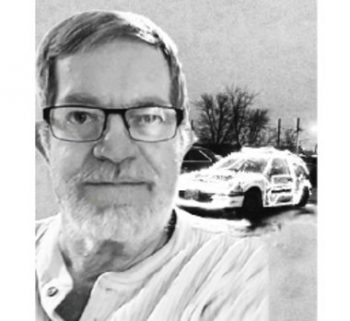“I think what we are seeing is a revolution.”
The woman who had spoken was leaning in close, whispering, not wanting to distract the young man standing on the stage. We were attending a conference on the status of healthcare and the man on stage was living with rheumatoid arthritis. He had been speaking about how he was diagnosed and the side effects of treatment. At that moment, he was talking about how hard it was to get out of bed some days.
“I remember when patients were never even allowed at these things,” the woman said, after introducing herself as a healthcare policy influencer. She went on enthusiastically about how much patient care had improved, how empowered patients are today and how easy advocacy seems to have become.
She was partly right. Sure, more and more, people with lived experience are showing up where they haven’t traditionally had a voice. And yes, patients and caregivers are more educated than ever before, playing more active roles in their care. Not sure I would use the words ‘easy’ and ‘advocacy’ in the same sentence, but if what she meant to say was that advocacy for patients is growing and gaining power and strength, I’d agree with that.
But a revolution?
Just that morning, I had received an email from the mother of Rob Snyder, an entertaining, talkative guy who I met years ago when we held a Living Well with CML conference in his hometown of Windsor Ontario. Rob always had a good story to tell. He was also known for his ‘Cancer Van’ – a van decorated with colourful lights that he drove across Canada raising awareness for blood cancer.
His mother had written to tell me that he had died suddenly that past weekend. She said that he had developed pneumonia. He had gone to the emergency department at the local hospital three times, each time finding it more and more difficult to breathe. Each time, he was sent home after being told that he had bronchitis and just needed to rest.
It turned out that among other serious things that were happening inside his body, Rob’s lungs were filling quickly with fluid – a common side effect of the CML medication he was taking.
“Did anyone check what medications he was taking?” she asked me, her voice shaking. I imagined she was holding back tears. “Did anyone listen to his lungs?”
Unfortunately, we will probably never know.
This news came on the heels of an education conference in Halifax to mark World CML Day on Sept 22. As usual, we opened the day with a presentation from a leading CML doctor who outlined the basics of CML and side effect management. Then what happened next left many of us shaking our heads.
After talking about the serious cardiovascular effects of CML medications and recent definitive research showing that people taking certain CML medications are at risk for serious cardiac events, someone in the audience asked whether or not her patients were being monitored, the way they were in other cancer centres.
“I would like to [monitor patients], but we don’t have the funding to pay for this extra testing,” she said.
But you just said that people could die.
And then there was the phone interview that I had just a week before with a Toronto-based healthcare facility. The job I had applied for was focused on patient education and helping patients and their families manage conflict within the hospital setting. It was a bit of a junior role, but by all counts I was a perfect fit. Yet as the interview came to an end, I commented on the role that patients and families play in managing their care. The interviewer laughed uncomfortably and pointed out several times that the interests of the hospital’s administration would also always have to be considered.
I did not get the job.
So that particular morning, as I listened to the young patient advocate use his experience to make change, I wasn’t thinking about a revolution. I was wondering why turning the tables on patient care felt so difficult sometimes.
After Rob’s mom told me about her son’s funeral arrangements, she said she hoped his story would encourage others to learn about the potential life-threatening effects of their treatment and actively advocate for their care.
“It’s the difference between life and death,” she said.
It’s also the difference between starting a revolution and simply trusting that others will take care of you.
And as the influencer and I joined the crowd in a standing ovation for the man on stage, who by now, was openly weeping, his story taking its toll, I was reminded that while it may not always feel like we are making progress, if we keep talking, sharing experiences and simply showing up, we can make a difference. Like Rob and his \’Cancer Van.\’
But a revolution? Ask me when people stop dying because of a lack of care and attention, when decisions about life aren’t based on money and when administrative goals don’t trump patient interests.

Rob Snyder | 1958 -2019